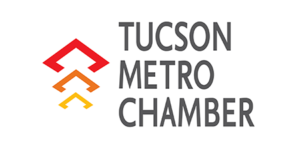Tucson Metro Chamber Applauds the Maricopa County Superior Court’s ruling that struck down Tucson and Phoenix’s prevailing wage ordinances
 TUCSON, AZ (June 27, 2024) — The Tucson Metro Chamber applauds the Maricopa County Superior Court’s Monday ruling that struck down the City of Tucson and Phoenix’s prevailing wage ordinances as violating state law.
TUCSON, AZ (June 27, 2024) — The Tucson Metro Chamber applauds the Maricopa County Superior Court’s Monday ruling that struck down the City of Tucson and Phoenix’s prevailing wage ordinances as violating state law.
“The Tucson Metro Chamber wants to see as many businesses and workers as possible be able to access the marketplace and succeed,” says CEO Michael Guymon. “The City’s prevailing wage ordinance would prevent this by creating red tape and costs that prevent especially small and mid-sized businesses from participating on City projects.”
The Tucson Metro Chamber collaborated with other local and state industry groups in filing an amicus brief with the Court, which aided the legal discussion in considering how a prevailing wage is not a minimum wage, and the disparate impacts of that distinction. Prevailing wage projects cost between 5% and 30% more to build, and excessive paperwork requirements, municipal red tape, and different internal process requirements between prevailing wage projects and other projects can add between $30,000 and $100,000 more to the cost of a project. Over the past few years, wages have risen in a variety of industries naturally due to upward market pressures, without the need for government intervention.
The Chamber expressed concerns to the Tucson Mayor & City Council meeting in January during the Call to the Audience (a public hearing was not scheduled for this item) which included analysis of what costs to the City and the taxpayer would occur over the next 1-5 years based on estimated number of projects impacted, and language that was not protective enough for both employers and workers. Additionally, there was concern about how a prevailing wage would impact items like road construction under the Regional Transportation Authority (RTA). In effect, an RTA project being built inside the City would have a different cost from a project being built outside City limits. This and impacts on water and other utility and infrastructure projects were not adequately considered.
“When we reduce barriers for small-and-midsize businesses, a greater diversity of businesses can participate in the economy, which in turn helps working families and wages grow and thrive in Southern Arizona. We will continue to outreach to and work with our local jurisdictions to ensure that we are adopting responsible public policy,” stated Guymon.
For more on the Chamber’s public policy and advocacy initiatives, visit www.tucsonchamber.org.